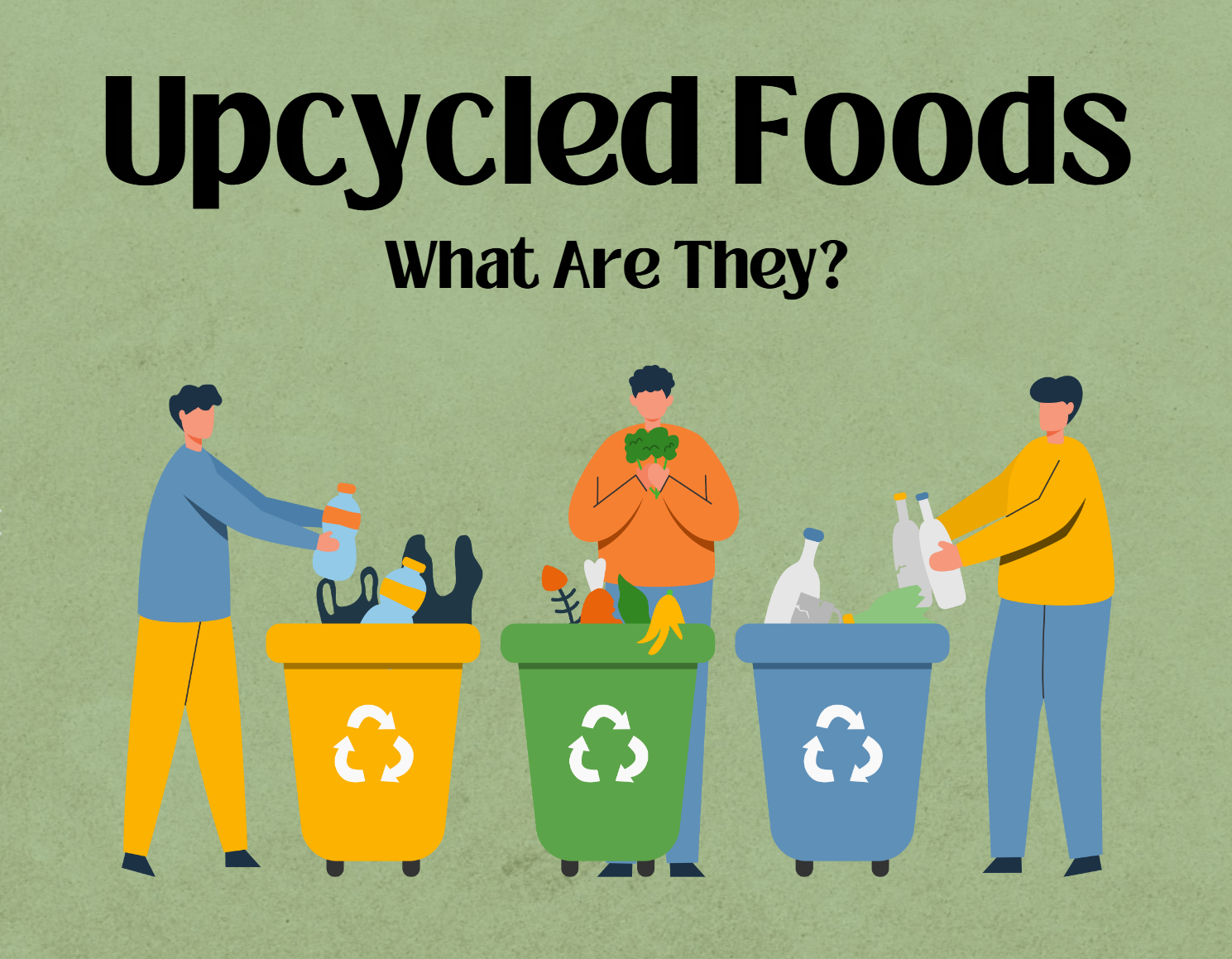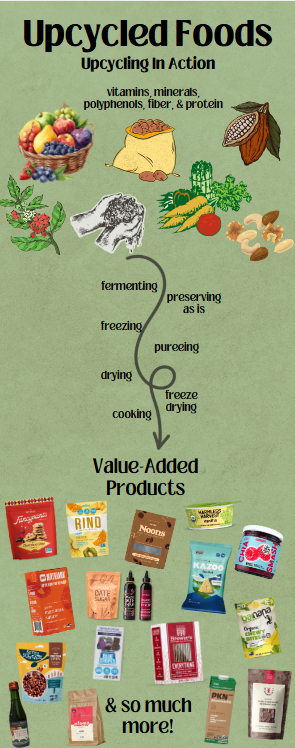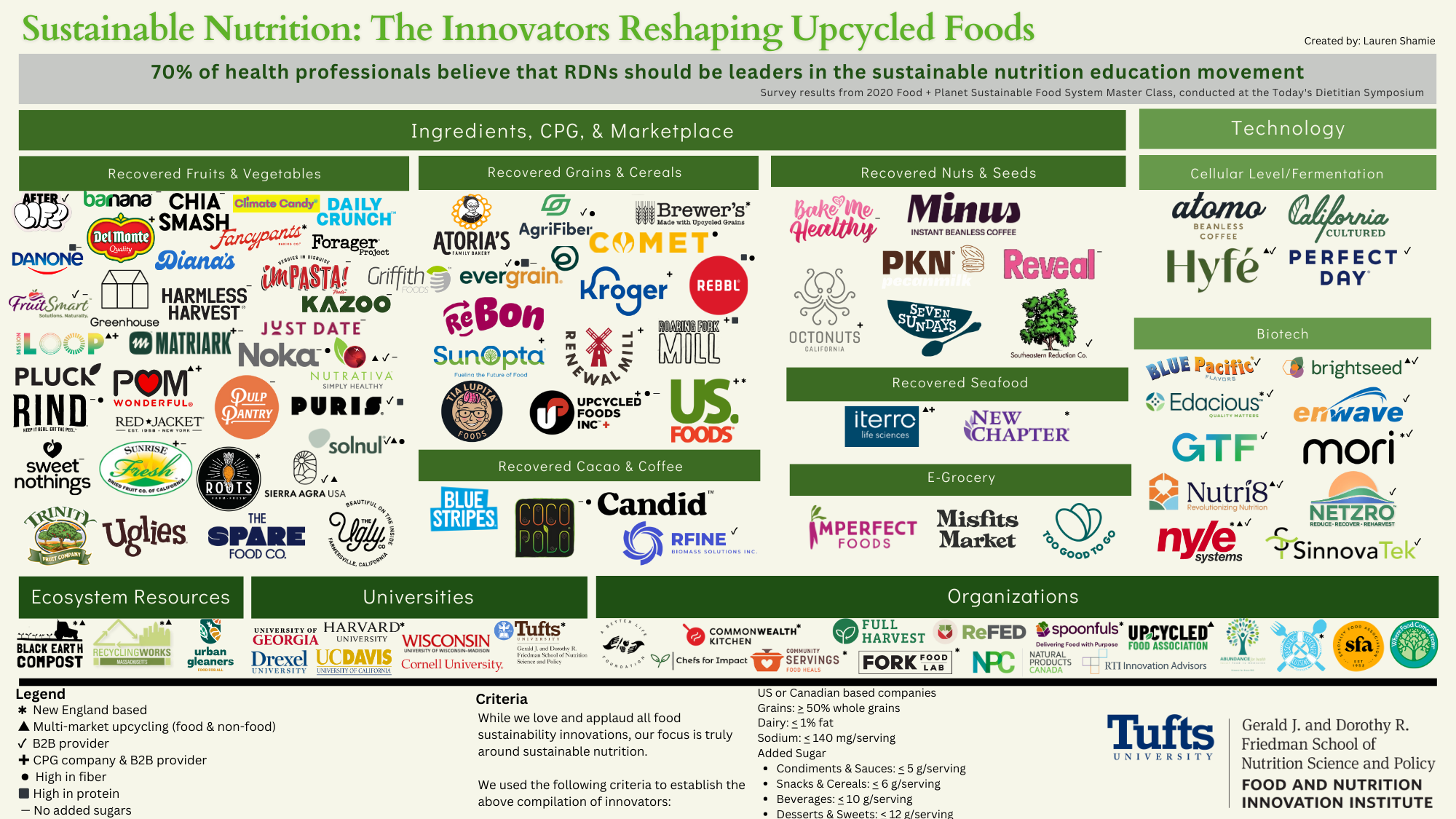
Lauren Shamie, MS, RDN
Project: Upcycled Foods – Transforming Waste into Wellness
In her capstone project with the Food & Nutrition Innovation Institute, Lauren Shamie explored the revolutionary role of upcycled foods in combatting food waste while promoting nutritional and environmental wellness. As a clinical nutrition student and Registered Dietitian, Lauren approached the topic through the lens of health, sustainability, and systems innovation.
Reclaiming Nutrition from Waste
Lauren’s report investigates how byproducts, surplus crops, and food manufacturing residues—often dismissed as waste—can be transformed into nutrient-dense, value-added food products. She highlighted the work of upcycled food innovators and analyzed the health potential of these overlooked resources, demonstrating how upcycling can increase dietary fiber, essential vitamins, and sustainable protein content.
Her analysis incorporated diverse waste streams, such as “manufacturing misfits,” “farm flaws,” and “commercial castaways,” offering a holistic map of opportunities for reclaiming value within the food system.

The Role of Dietitians in the Movement
Lauren emphasized that dietitians are uniquely positioned to lead the upcycled food revolution. By advising clients, shaping institutional menus, and advocating for policy change, nutrition professionals can bridge the gap between food innovation and public health impact. Her report calls for nutritionists to embrace food system sustainability as a core value of their practice.
She created a Pocket Book Guide to empower dietitians and consumers with quick facts, action tips, and science-backed context, reinforcing the idea that individual choices can ripple into system-wide transformation.

Impact and Vision
Lauren’s work quantifies the massive environmental and economic impacts of food waste—from trillions in lost value to CO₂ emissions and land usage. Her project reframes waste not as a liability, but as an untapped source of nourishment and innovation.
Through rigorous research, storytelling, and visual design, Lauren has helped translate sustainability science into actionable insights, promoting a food system that prioritizes both wellness and waste reduction.
Her contribution offers a powerful example of how nutritionists can lead in climate-resilient food strategies and systemic change.